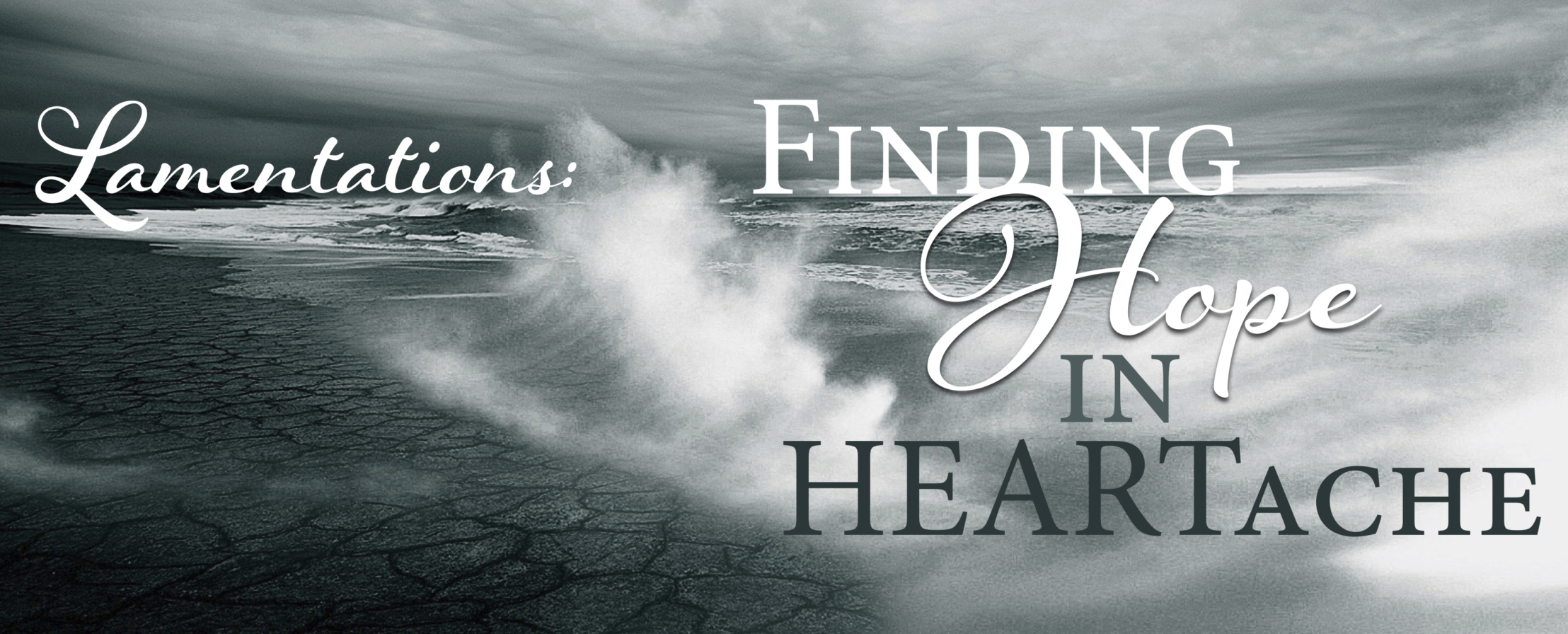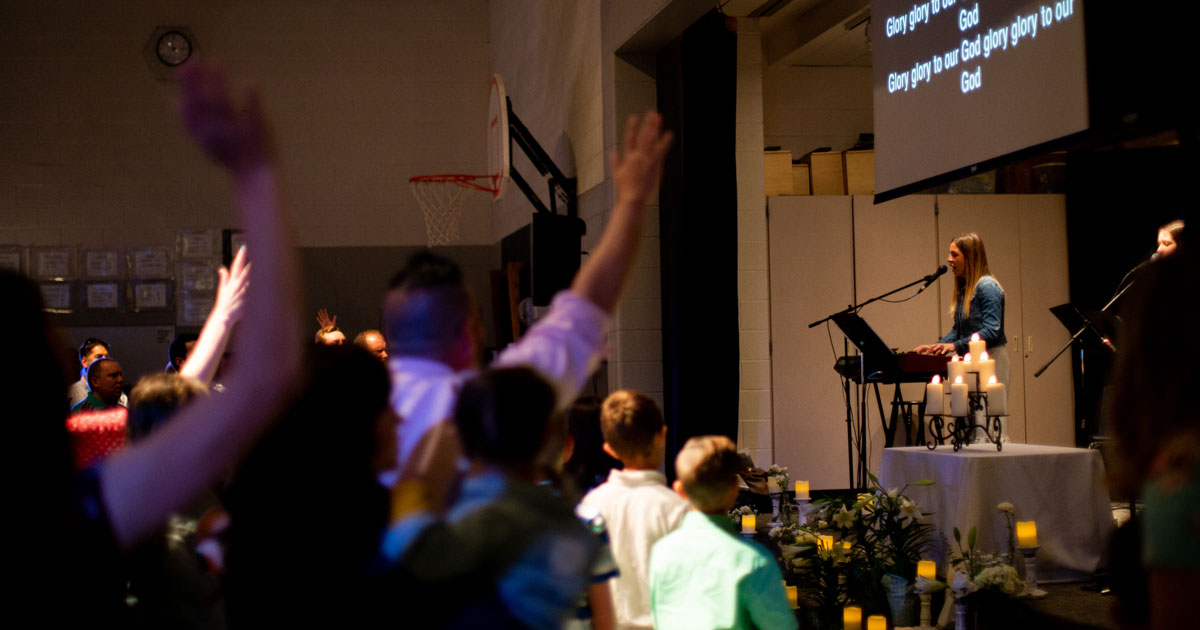
01|2020
This Sunday we started at 6-week series on the book of Lamentations. Although every Christian goes through periods of grief or profound sadness, we are pretty unpracticed with the biblical concept of lament. In this series we’re going to see how a four-step process frames the idea of faithful lament. Each of these are necessary to turn raw and powerful emotion into worship of a wonderful God.
TURN to God in prayer. Just by going to God with our grief, we are doing something distinctly Christian. It says that, no matter the sheer weight of emotion we feel, we are going to approach God with our fear or anxiety, not run to something else. When looking at Psalms of lament or Lamentations itself, it might be easy to miss this first step. But typically, just the very act of writing a prayer illustrates the turn to God the author took in the first place. When we turn to God, we are rehearsing an ancient biblical practice of faithfulness even in trials.
COMPLAIN to God about the effects of sin and brokenness. Complaining to God sounds a bit contradictory to what we’re taught about him. Who are we to complain to our sovereign God, the one who sent his Son to die for us? But a complaint is not simply whining about our situation. It is bringing to our Lord and Father something which is causing great distress in our lives. It is to say that we are feeling the effects of sin and our fallen world in a very specific way. Our complaint might be the loss of a job, or a recent medical diagnosis. It could be a family member’s death, or the rejection of Jesus by someone we love. But the common thread of lament is the proclamation to God that something is wrong and broken in our lives, and we need him desperately.
ASK for God to bring healing and wholeness. If God desires children who are bold enough to bring complaints, he surely expects them to ask for him to help them as well. By requesting to God that he heal our pain or cure our sickness, we lay bare the fact that we cannot fix our situation on our own. By asking for God’s help, we are confessing our own weakness. It is a realization that, in our human brokenness, we are utterly dependent upon a God who is capable where we are not.
TRUST that God will fulfill his promise and stay true to his character. As Mark Vroegrop says (and more on him below), if you never get to the trust part, you’ve only been really sad for a certain time. Trust in God means that we believe what God says about himself and what he will do. This is where we as readers in 2020 have a huge advantage, even over the authors of the OT books. When David or Solomon wrote their prayers of lament, they trusted that God would deliver them in some form, a Messiah who would redeem Israel. But over 2,000 years later, we as Christians know exactly how God’s promise was fulfilled. It was in the person of Jesus Christ, sent by God to live and die and rise again. He was (and still is!) the great hope for all of God’s people, and we can say today that we trust in God’s promises and his character because we have already seen it come through in the biggest way- through the Messiah himself.
We wrapped up this week’s sermon with a lament prayer of our own. In it we turned to God because we have nowhere else to God, complained to God about the brokenness felt in our world and in our own lives, asked God to be near from us in our pain, and trusted in the grace we have already experienced through Jesus.
A Prayer of Lament
Oh Lord our God,
To you we cry out,
To you we run,
For where else would we go?
We feel the weight of our broken world,
Through wars, famines, and disasters,
In injustice, hatred, and oppression.
The nations desperately need your deliverance.
We weep at our own brokenness
For the guilt, shame, and pain we feel
Weighed down by sin, held back by fear
We mourn our distance from you.
Be near to us, Oh God
Remember not our sin or failures
Reveal your Kingdom to our hearts and our community
Restore us to an awareness of your presence.
But, we have experienced your grace
And we will experience your restoration
Through your atoning death our sins are forgiven
And in your return we will be made whole.
Finally, a very helpful resource used in preparation for this series was Mark Vroegop’s Dark Clouds, Deep Mercy, published earlier this year. Mark is a pastor in Indianapolis, and he wrote the book after preaching through Lamentations and the lament prayers from Job and Psalms. He also gave a talk at the 2019 TGC National Conference, which is a great audio resource on the topic of lament. In both the book and the podcast, he walks through the concept of Turn, Complain, Ask & Trust, so that we can become more proficient at this ancient and faithful Christian practice.
Categories:: Bible Study, General, Resources

